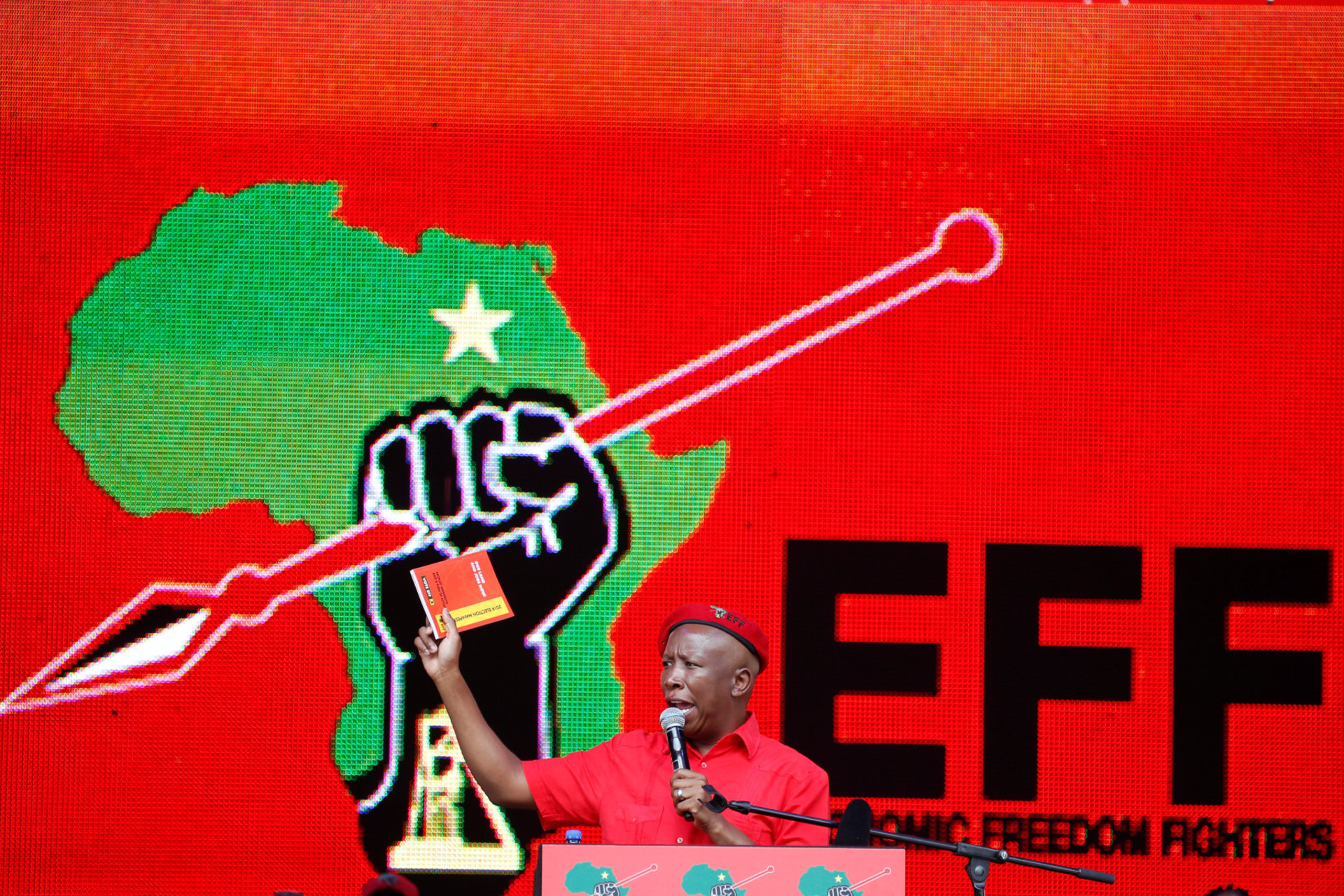The Economic Freedom Fighters, South Africa’s Enfant Terrible

By experts and staff
- Published
By
- John CampbellRalph Bunche Senior Fellow for Africa Policy Studies
On February 2, the Economic Freedom Fighters (EFF) unveiled its election manifesto with spectacle and fiery rhetoric characteristic of its leader, Julius Malema. It reiterated its positions on land and mine ownership, called for the doubling of social grants (welfare payments), and for increases in spending on educational infrastructure and healthcare. It reached out to traditional leaders, such as tribal chiefs, who are powerful among the rural poor. However, the manifesto says little about how these reforms would be paid for. On this issue, EFF rhetoric rarely moves beyond “soak the rich.” Indeed, the manifesto largely ignores the imperative of economic growth.
The EFF receives exaggerated media attention because of its radical economic policies and its use of anti-white dog whistles and sometimes overtly racist rhetoric. In the 2014 national elections, the party’s first ever, it received about 6 percent of the vote, and in the municipal elections in 2016, over 8 percent. While the governing African National congress (ANC) and the opposition Democratic Alliance (DA) are in disarray, most observers doubt that it will break ten percent in the upcoming May 2019 national elections.
Nevertheless, the ANC at times appears terrified of the potential for the EFF to win over hitherto supporters of the ruling party in black townships and rural areas. The concern is well placed, as the EFF is likely to increase its share of the vote at the expense of the ANC. Accordingly, the ANC has adopted policies associated with the EFF that probably damage its own efforts to attract foreign investment. In particular, an EFF rallying cry has been “expropriation without compensation,” a reference to the government’s seizure of white-owned farmland and mines. Accordingly, the ANC supports a constitutional amendment that would allegedly make state confiscation of private property easier. Such rhetoric has the potential to “spook” private investors, both foreign and domestic, that are considered necessary for the resurgence of the economy. The EFF manifesto is largely coherent, internally consistent, and bound to be attractive to the many black South Africans who are disappointed in the current government’s perceived inability to deliver on its promises.
Poverty in South Africa remains overwhelmingly a black phenomenon, while whites have done well since the end of apartheid. Traditionally, the party of blacks has been the governing ANC, though it has always been nominally nonracial. Riddled with corruption and appearing increasingly incompetent, the ANC may well lose votes, though it is likely to retain its parliamentary majority (it currently holds 62.5 percent of seats in the National Assembly). The DA has failed to make itself relevant to the black majority, and it is hard to see it earning much more than the 22.2 percent of the vote it won in 2015. Hence the EFF could be the only party of the three to increase its share of the vote and gain seats in the National Assembly. With respect to local government, the EFF has already played a kingmaker role in some areas by shifting its support back and forth between the ANC and the DA.